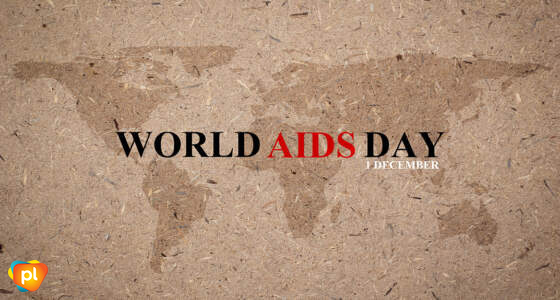
World AIDS Day is also a day for the community to show their support for people living with HIV (PLHIV) and to commemorate with our friends and loved ones who have died of AIDS related conditions or other conditions associated with HIV.
The theme of this year’s World AIDS Day was ‘Right to Health’. According to UNAIDS, the right to health means more than just access to quality health services and medicines; it means ensuring people’s fundamental needs are met, such as being treated with respect and dignity, proper sanitation, housing, education, and being able to make decisions about one’s own health.
Globally, for the most of us, accessible healthcare as a fundamental human right is yet to be realised. As an American, I’m all too familiar with the fight for universal healthcare. We’re fortunate in Australia that through the advocacy efforts of those who’ve come before us, most people living with HIV have access to affordable or free tests, treatment, and prevention options. However, we still have a ways to go before every Australian with HIV, including migrants and refugees have equal opportunities and rights.
Positive Life NSW continues to advocate for clearer protocols and referral pathways to ensure that migrants, refugees, visitors, temporary visa holders, non-citizens, people living in remote areas, and people without Medicare access are afforded the same access to HIV treatment as other Australian citizens. Jane Costello, President of Positive Life, delivered a powerful speech on World AIDS Day, highlighting that there is still an unacceptable disparity in the rate of HIV in Aboriginal and Torres Strait Islander versus non-Indigenous Australians, and in those from culturally and linguistically diverse (CALD) backgrounds.
People living with HIV must be able to take control of and make decisions about our health in all situations. Positive Life has been working on a program to empower newly diagnosed people living with HIV to take control of notifying sexual and injecting partners of their HIV status, with the support from peers. The Peer-Led Partner Notification program was featured at our World AIDS Day event, and will be officially launched this coming March/April 2018.
So why is Positive Life involved in a Partner Notification program?
While the people living with HIV community has developed skills in disclosure and navigating shared responsibility with current and new sexual and injecting partners, partner notification involves disclosing to past partners when newly diagnosed with an STI, HIV, or HCV. Both are important and intimate disclosure moments that can help us build trust with our partners.
People living with HIV traditionally have only had access to partner notification services, often referred to as ‘contact tracing’, through clinical services. These ‘contact tracing’ services involve a healthcare worker contacting someone’s sexual or injecting partners and letting them know they may have been put at risk to an infection. While these services ensure anonymity and confidentiality, the main shortcoming is, for some people living with HIV, deferring responsibility to the clinician misses an opportunity to be fully in control of strengthening skills and knowledge. The current online notification tools only focus on disclosure of certain STIs and exclude information for HIV disclosure, for various reasons. They also rely on messaging, which means you need the partner’s phone number, profile name or email address to notify them.
When clinical services are provided in this way, we miss an opportunity for newly diagnosed people living with HIV to build their confidence and skills, and for peers to work together with dignity and respect.
In partnership with the NSW Sexual Health Infolink (SHIL), Positive Life has stepped up to the challenge of creating a peer-led partner notification pathway so PLHIV can notify partners of their HIV risk through many platforms, including some social media and dating apps. This way, even if you didn’t ask for a sexual or injecting partner’s phone number or name, you could still contact them where you first met (i.e. Tinder, Grindr, etc). The peer-led partner notification website and app will be accessible, completely confidential, and will offer important information and referrals about where people can get tested.
Notifying partners and disclosing an STI, HIV or HCV diagnosis can be nerve-racking and uncomfortable, and it also might put some people’s safety at risk. Positive Life peers know that disclosure isn’t always safe or possible in all circumstances for everyone, so we’ve also ensured there’s information tailored for ‘high-risk’ situations like physical, social or sexual violence, where a person’s safety is the top priority.
Partner notification can be respectful, liberating and doesn’t need to be anxiety-inducing. With the support of experienced peers from Positive Life and the resources we’re developing, people living with HIV will have choices about who to tell, how to tell, and when to tell. As we exercise our right to health by taking control and making our own informed decisions about partner notification, we build confidence and skills in disclosure and managing our health information.






